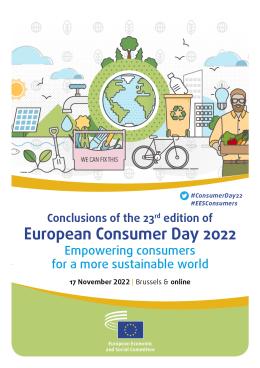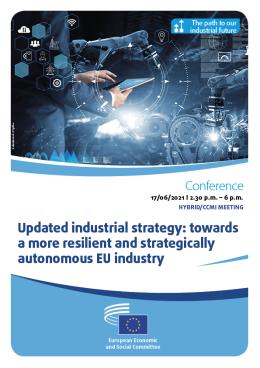European Economic
and Social Committee
Economía circular
La transición hacia una economía circular ocupa un lugar destacado en la agenda del CESE como solución para luchar contra la crisis climática y proteger nuestro planeta. Es una gran oportunidad para la sociedad civil, ya que puede contribuir a:
- incrementar la competitividad de la industria europea,
- fomentar el crecimiento económico sostenible;
- generar nuevos puestos de trabajo.
El modelo de producción y consumo basado en «extraer, producir y desperdiciar» que sigue dominando nuestra economía en la actualidad no solo despilfarra recursos, sino que también socava la lucha contra el cambio climático. A diferencia de la economía lineal, la economía circular se basa en un diseño regenerativo y reparador que se centra en la creación y retención de valor económico y que aborda retos medioambientales mundiales como el cambio climático, la pérdida de biodiversidad y la contaminación, al tiempo que genera beneficios económicos.
La buena noticia es que la transición circular ya se está produciendo sobre el terreno. Las partes interesadas de la sociedad civil —incluidas las empresas, los sindicatos, el mundo académico y las comunidades de conocimiento, las organizaciones juveniles, así como las ONG y otros grupos de interés— están creando y aplicando numerosas iniciativas circulares a nivel local y regional. Catalizar las soluciones circulares y el liderazgo de las partes interesadas pertinentes es la mejor manera de que Europa acelere la transición hacia una economía circular.
Como tal, la Plataforma Europea de Partes Interesadas de la Economía Circular —una iniciativa conjunta del CESE y de la Comisión Europea— es una plataforma creada en 2017 para reunir a la comunidad de la economía circular en Europa. La plataforma impulsada por las partes interesadas respalda la transición de Europa hacia una economía circular mediante el fomento del diálogo y el intercambio de conocimientos y buenas prácticas.









